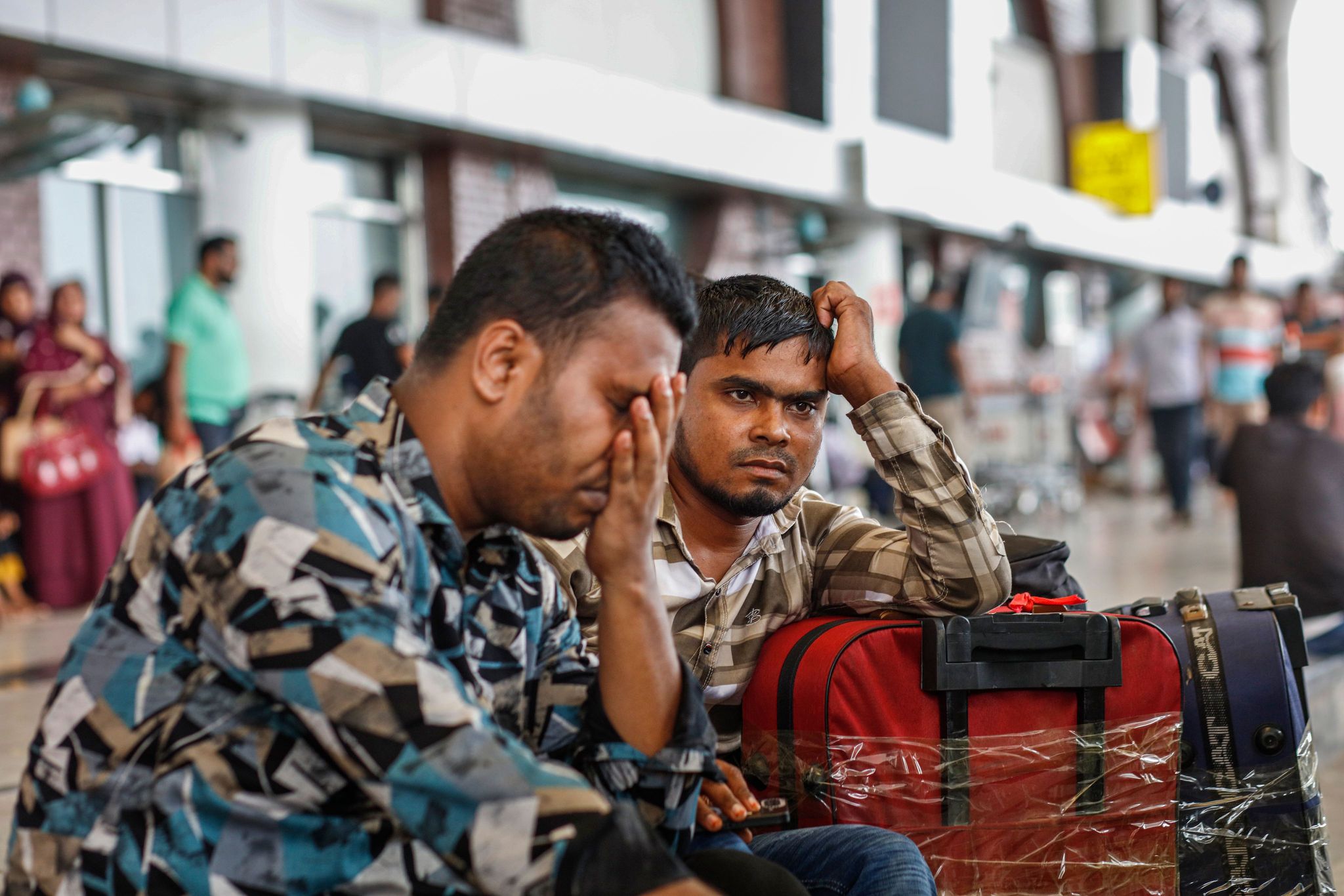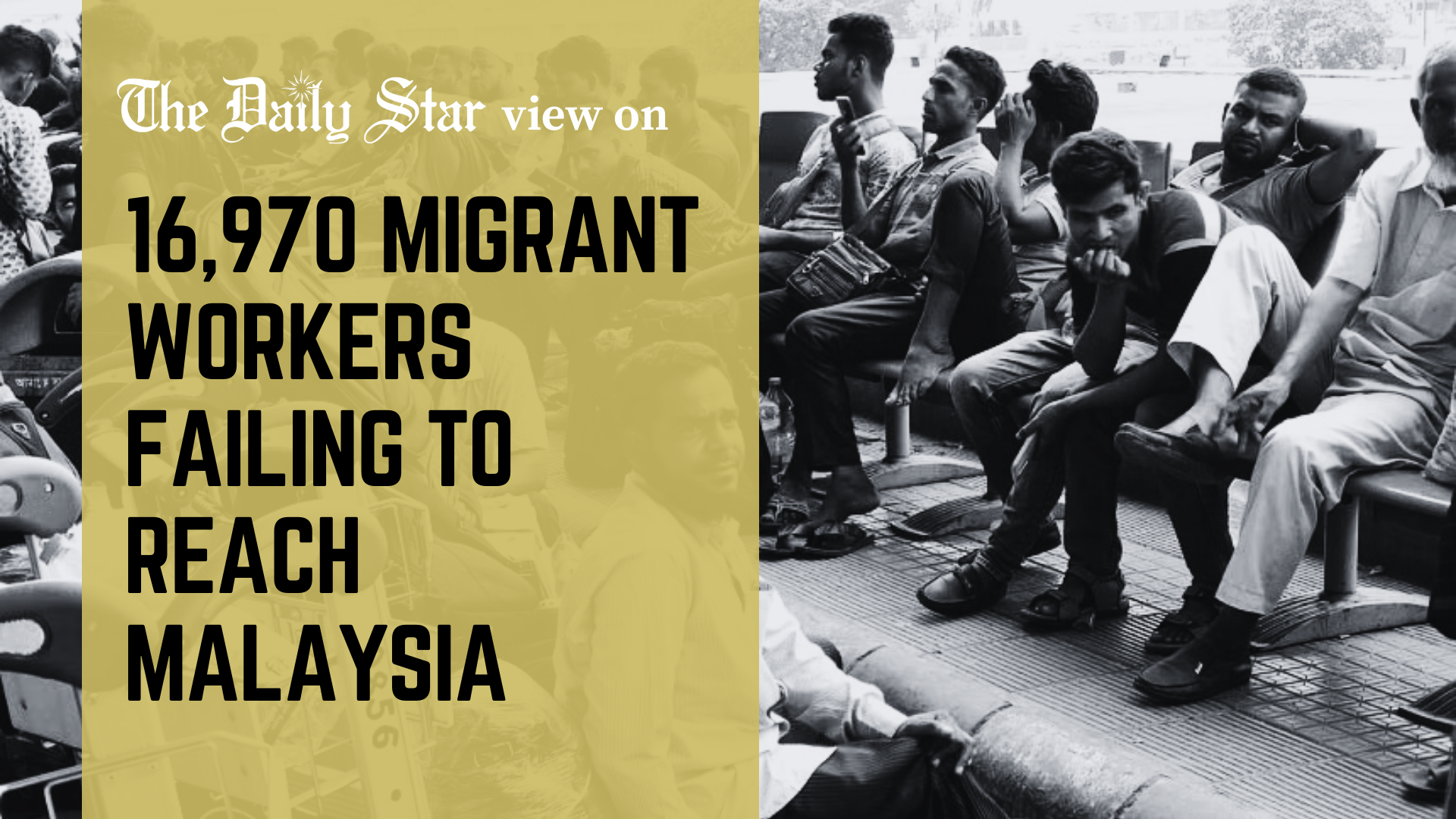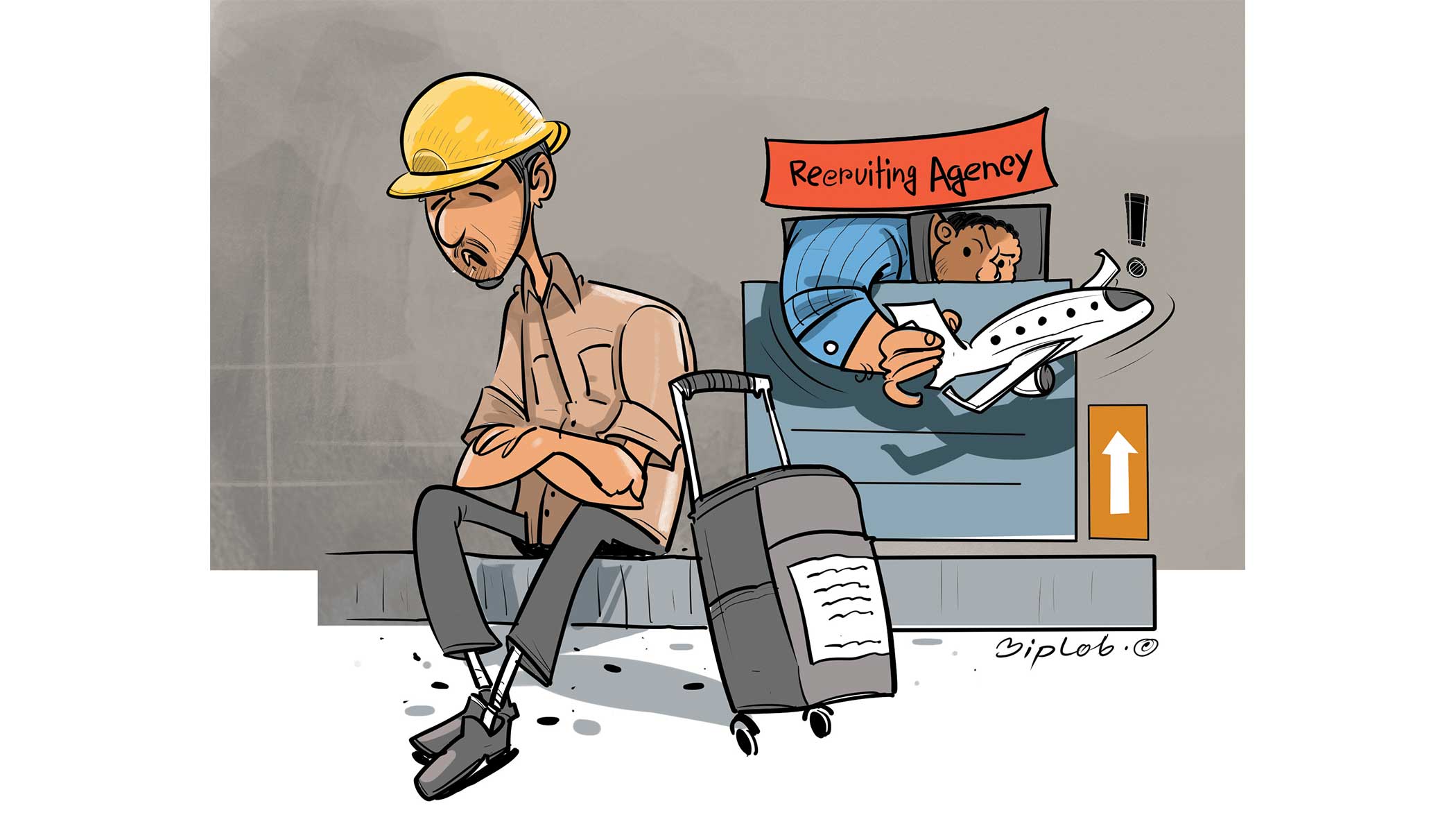Dismantling the recruitment syndicate for Malaysian labour market

"Syndicate may exist at our end which is outside the control of both Bangladesh and Malaysian governments."
– Malaysian high commissioner in Dhaka, May 29, 2024
Shoring up Bangladesh's plundered economy is a top priority of the country's incumbent interim government. Soon after its assumption of office, the government announced its resolve to uproot corruption, a phenomenon that became all-encompassing during the 15-plus years of Awami League rule. A classic case of monumental corruption took place centring the recruitment of workers for the Malaysian labour market. A syndicate of key actors with access to corridors of power in Bangladesh and Malaysia were able to establish their total sway over the labour recruitment process, which led to a massive spike in migration costs—at least four to five times the official rate.
In March 2024, the new Malaysian government announced that the flow of workers to the country would be halted from May 31. The decision was made in view of various irregularities, including corruption and high migration costs, committed by those involved in facilitating recruitment to the country. About 50,000 workers from Bangladesh missed their employment opportunities even after being selected for jobs.
The syndicate is steered by a Malaysian Dato of Bangladeshi origin who owns the IT company Bestinet. Its subsidiary company, the Foreign Workers Centralized Management System (FWCMS), extends online support to the Malaysian government's foreign worker recruitment initiative. While FWCMS provides only online technical support for labour recruitment from all of the 14 other source countries, it is exclusively in the case of Bangladesh that the agency, abusing its assigned role, has established a stranglehold on the labour recruitment process from the country. In doing so, it has robbed the Malaysian companies of the liberty to recruit workers directly through their preferred recruiters in Bangladesh, choking free competition among Bangladeshi recruitment agencies.
Under the auspices of the FWCMS, as many as 2.67 lakh and 4.76 lakh Bangladeshi workers went to Malaysia in 2016-18 and 2022-24, respectively, totalling 7.43 lakh. While the official figure of recruitment fees for Malaysia stood at Tk 78,990, Bangladeshi workers had to pay Tk 4 lakh to Tk 5 lakh to the agents. On March 28, four UN experts wrote to the Bangladesh and Malaysia governments about the situation of Bangladeshi migrants in Malaysia and mentioned that each migrant spent between $4,500 and $6,000.
Industry sources acknowledge that in addition to actual costs, recruiting agencies were obliged to pay Tk 1.52 lakh to Tk 1.65 lakh per worker to the protagonists of this scheme. Therefore, a cursory estimate reveals that in the two rounds of recruitment in the Malaysian labour market, a staggering sum of over $941 million, equivalent to nearly Tk 11,294 crore (at $1=Tk 120), has been allegedly usurped by the members of the syndicate.
The sources further inform that Bestinet's Bangladeshi counterpart collected the amounts from recruiting agencies in cash that were subsequently transferred via hundi to Malaysia. Likewise, a huge sum of money was also syphoned off through pre-departure medical tests by the same group. In this case as well, the recruiting agents were obliged to conduct the tests in facilities charging hefty amounts that were listed by the syndicate. Such a practice undermined the list of diagnostic centres approved by the Ministry of Expatriates' Welfare and Overseas Employment.
Reputed recruiting agents with a track record of sending workers to Malaysia have alleged that, in many instances, the agencies listed with the FWCMS were only performing the role of dalal (intermediaries), extracting money from genuine recruiters in exchange for the demand letter. While the non-listed companies did most of the recruitment tasks of contacting employers, securing demands, and eventually sourcing workers, many among the listed ones charged them stocky sums simply by trading papers. Under such a shady scheme, the actual facilitators of migration did not find a place in the official books of sending and receiving countries. It is the non-performing inactive companies who were recorded as facilitators.
Media reports have highlighted on many occasions that the "sub-agents" (non-listed recruiting agencies) were required to provide written undertakings that made them liable for any subsequent complaints of irregularities. This is surely a case of grievous anomaly in ensuring accountability and transparency in the recruitment process. The syndicate's unrestrained power was palpably demonstrated when the Bangladesh Overseas Employment and Services Ltd (BOESL), the state-owned recruiting agency, was made to endure major obstacles in processing the clearance of demand letters it received. The agency could secure clearance for only 15 percent of the 10,000 demand letters as many of those were mysteriously "redirected" to private agencies.
The seed of the syndicate arrangement was sown in the MoU signed between Bangladesh and Malaysia (2021), in which the responsibility of selecting Bangladeshi recruiting agencies rested with the Malaysian authorities. This provided the syndicate kingpin Dato Noor Amin the opportunity to manipulate labour recruitment from his native Bangladesh by marshalling political contacts in Kuala Lumpur. The Dato was ably supported by his counterpart in Bangladesh, a former secretary general of Bangladesh Association of International Recruiting Agencies (BAIRA), who in turn managed the blessings of a powerful adviser of the fallen dictator of Bangladesh, several influential members of parliament, and a senior bureaucrat. Needless to say, millions of dollars garnered through the syndicate arrangement came in handy in accomplishing the duo's goals. Observers believe perhaps for the same reason the two separate complaints filed by a few aggrieved Bangladeshi recruiting agencies against the syndicate arrangement with the Anti-Corruption Commission in Bangladesh and the Malaysian Anti-Corruption Commission in 2017 failed to gain traction.
Initially, 25 agencies were selected to send workers to Malaysia; subsequently, following an outrage among the BAIRA members, the number was increased to 101. As no criterion for qualification was set, many new recruiting agencies were issued with licence and were enlisted. Curiously, several such newly licensed agencies with appropriate political linkage became the major beneficiaries of the syndicate.
There are indications that the ban currently in force on the Malaysian labour market may be lifted. Rumour is also rife that the protagonists of the syndicate arrangement have become active to establish their absolute control over the new dispensation. Under the circumstances, the Yunus government should immediately take meaningful steps to dismantle the syndicate system that has thrice disrupted the flow of migrants from Bangladesh to Malaysia, causing immeasurable sufferings to our migrant workers. Those in authority may consider taking the following measures: firstly, there is an urgent need to revise the clause in the MoU between Bangladesh and Malaysia to ensure that all registered recruiting agents in Bangladesh can facilitate recruitment to Malaysia. It may be noted that such a restriction was imposed only in Bangladesh's case, thanks to the machinations of the syndicate. No recruiting agent of the 14 other source countries face such discriminatory prohibition.
Secondly, there is an urgent need to hold to account the perpetrators of the syndicate system both in Bangladesh and Malaysia. The government should institute a thorough and credible investigation into the corruption and fraud committed by the principal operators, including public representatives, members of state agencies and those of recruiting agencies in Bangladesh, and urge the Malaysian authorities to do the same. Their crime is tantamount to economic sabotage of the state.
Thirdly, for future recruitment initiatives, the Bangladesh government should ensure that (a) all transactions including recruitment fees, government charges, medical tests, etc are conducted by cheques and workers are provided with proper receipts for such payments, and (b) workers can have their medical tests done at any of the diagnostic centres listed by the ministry.
And finally, to design an appropriate strategy to hold the syndicate members accountable, the authorities should set up a cell in the expatriate welfare ministry to document cases of high migration costs, unemployment, non-payment of wages, cheating and fraudulence of workers adversely affected by the arrangement.
Dr C R Abrar is an academic with interest in human rights. He is the executive director of the Refugee and Migratory Movement Research Unit (RMMRU).
Views expressed in this country are the author's own.
Follow The Daily Star Opinion on Facebook for the latest opinions, commentaries and analyses by experts and professionals. To contribute your article or letter to The Daily Star Opinion, see our guidelines for submission.




 For all latest news, follow The Daily Star's Google News channel.
For all latest news, follow The Daily Star's Google News channel. 




Comments